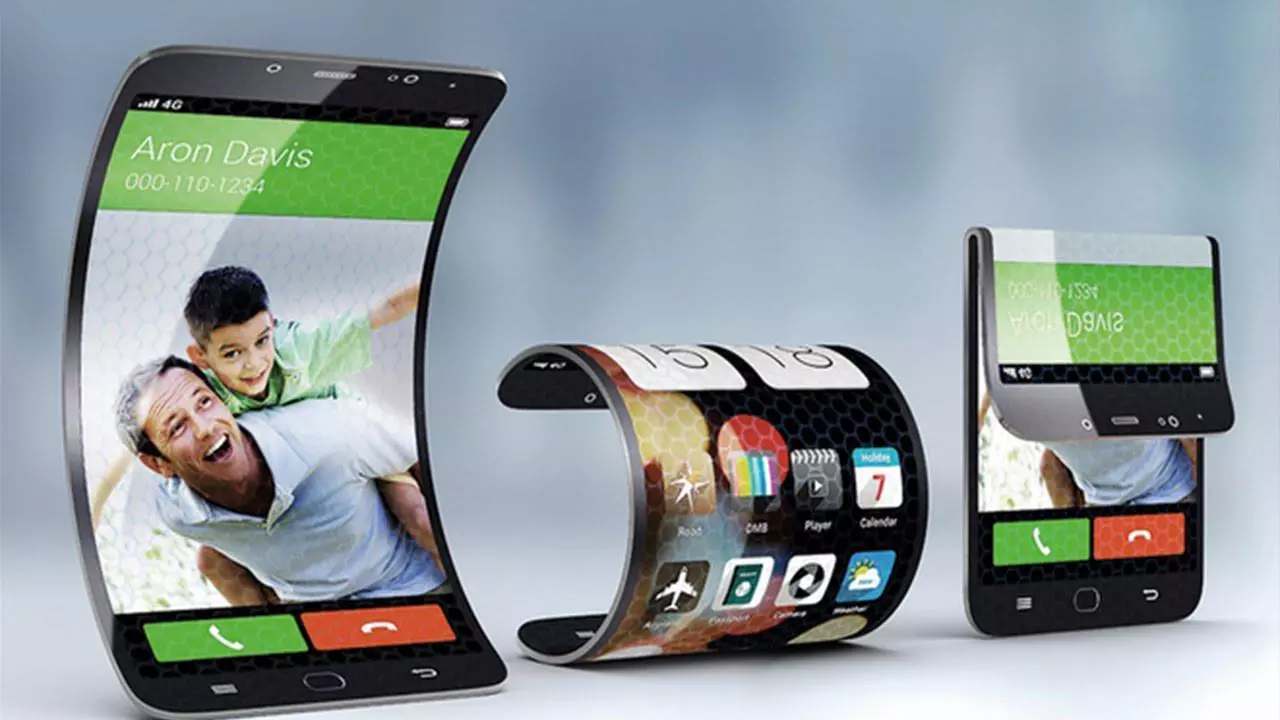While foldable phone display technology may seem gimmicky, it has the potential to add real business and economic value.
If you are a tech enthusiast – like I am – you have probably heard about foldable display technology that enables products to have flexible screens. While the technology has been around for a while, it has not yet gone mainstream. But that may be about to change. Leading phone makers have either patented or launched product prototypes with it. And some have even gone on record to say that 2018 will be the year they will finally launch a foldable phone
What I find interesting about foldable phones is that they are actually so cool that they almost seem gimmicky.
Click here to watch a video of foldable phones.
You can often see them displayed in tech shows and expos to the amazement of crowds, who – after their initial wonder - almost always dismiss it as the next shiny thing.
But is it really that? Or do foldable phones have the potential to add real business and economic value? I think it is the latter. Not only that, I also think we actually need them. Here's why.
Keep the Mobile Economy Going
75% of the world’s population and 98% of adults have a mobile phone now. A big reason for their near ubiquitous use is that they have allowed us to stay connected while on-the-go. But this popularity has also given rise to a contrasting trend: the desire for larger screen sizes. I say contrasting because as phone screens increase in size, it gets difficult to pocket them and stay mobile. Imagine if your phone was double in size (because of a larger screen), would you be able to carry it around as easily? Probably not.
And this is where a phone with foldable display can come in handy. With screen sizes headed in only one direction – up - having the ability to fold them may be the only way to keep the mobile economy going.
Reduce Household Gadget Expenditure
A big reason for the advent of phones with larger screens was the emergence of tablets. From watching high-def movies to playing 3D games to just enjoying casual browsing, tablets got us hooked to larger screens. It is no secret that every household has at least one tablet and 10% have at least two of them.
Foldable phones however, could arguably provide tablet-esque experience and virtually eliminate the need for tablet purchases, thereby reducing household gadget expenditure by $400, the average tablet price. Granted some folks will always own a tablet but for those – like me - who got it only for its larger screen size may be tempted to cut back on their future tablet purchases.
Reduce Decision Fatigue
I travel a lot for work. Because I travel light, I constantly have to decide which device – phone or tablet - to carry where. While seemingly a small decision, when added to the hundreds of other decisions we make during our day, it adds to something that psychologists call decision fatigue.
Decision fatigue is a condition where making a current decision impacts our future decision-making capability. As humans we can only make a finite number of well thought-out decisions. And beyond a certain point, we tend to make wrong ones. Including irrational ones. In fact, decision fatigue is now understood as one of the causes of irrational trade-offs in decision making. It is also one reason why several people like Barack Obama and Mark Zuckerberg chose to wear the same clothes everyday: so they have one less decision to make in their day - what to wear?
By having a foldable phone that can double up as a tablet, we too will have one less decision to make during our day – which one to carry? And reduce decision fatigue.
Of-course the above points assume that foldable phone displays will be as good as that of regular phones. That they will provide as seamless a viewing experience as their larger tablet counterparts. That they will not degrade in quality or longevity when we fold, twist or bend them several times over.
Only time will tell if that will indeed be the case. But even if foldable phones may not be flawless right out-of-the-bat, there's a good chance they will not eventually get there.
Do you think a foldable phone is just gimmicky or does it add real value? Why ? Or Why not? Please add in your comments below




Leave your comments
Post comment as a guest